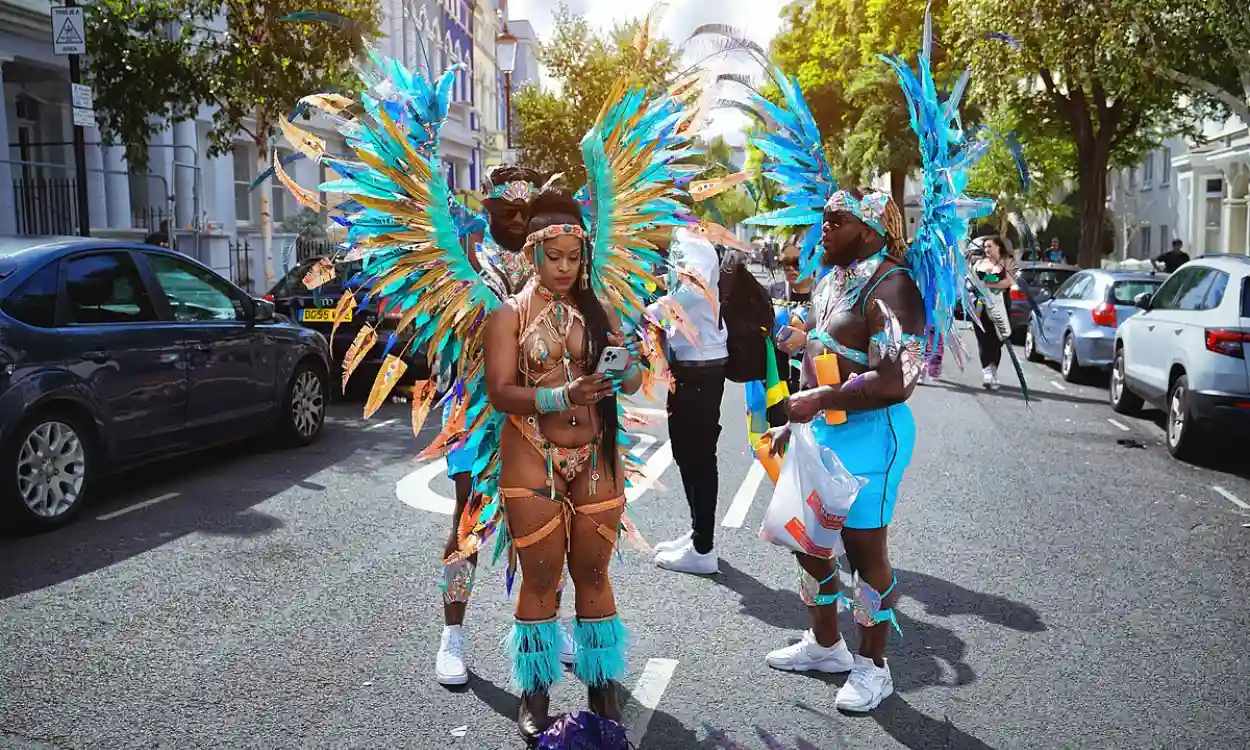Kensington and Chelsea (Parliament Politics Magazine) – Revellers, dancers, and musicians lit up Kensington and Chelsea for the Notting Hill Carnival, celebrating culture despite ongoing funding challenges.
More than a million people were anticipated to attend the 57th edition of the carnival, which honors the city’s diversity and the contributions made by generations of immigrants and their descendants to British society.
The event’s third and last day, Monday, saw celebrations in Kensington and Chelsea, where people dressed in vibrant festival costumes encircled trucks covered in colorful materials that held bands and sound systems playing reggae and soca music.
The “Windrush” generation—hundreds of thousands of Caribbean migrants who arrived in Britain between 1948 and 1971 to aid in the post-World War II reconstruction of the nation—is where the carnival got its start.
Racial tensions and the unjust treatment of Black people accompanied their arrival. The message of the carnival is still significant to certain people today.
Ian Comfort, the carnival’s chair, told them that the event nearly didn’t materialize this year due to financial difficulties.
“Continuing to do carnival every year just… reinforces the importance of equality and understanding everybody despite what background they’re from,”
said 29-year-old Jocelyn Kuyaziwm, part of one of the carnival’s masquerade groups.
The organizers commissioned an assessment that brought to light safety issues, especially with regard to crowd control, necessitating further funding. Concerns have also been raised over violent situations involving a tiny percentage of attendees.
The London mayor’s office and two local councils provided roughly 1 million pounds ($1.35 million) in cash just weeks prior to the event, allowing it to go, but questions over its future still exist.
The additional funds supplied by his authority will be used “for this year only,” according to Kim Taylor-Smith, deputy leader of Kensington and Chelsea Council. He urged the government to provide financial support for the occasion.
35-year-old Cristianne Bukhari, who has always attended carnivals, expressed her frustration that the authorities frequently overlook the significance of the occasion.
“There’s always going to be downsides,”
Bukhari said.
“But if you look around… there are people from all over the world – white, Black, Asian – coming together and celebrating. We need more of this.”
How much additional funding was secured to keep the carnival running?
A total of £958,000 was pledged by London’s City Hall, the Royal Borough of Kensington & Chelsea, and Westminster City Council. Kensington and Chelsea Council confirmed a one-off increase of £232,000 in grant funding.
The Greater London Authority (GLA) contributed an additional £296,300, supplementing prior funding, to cover increased stewarding and crowd management costs.
The funds were essential to hire additional safety staff and implement crowd management improvements, although organisers and authorities stressed this was a one-time allocation for 2025 only.


